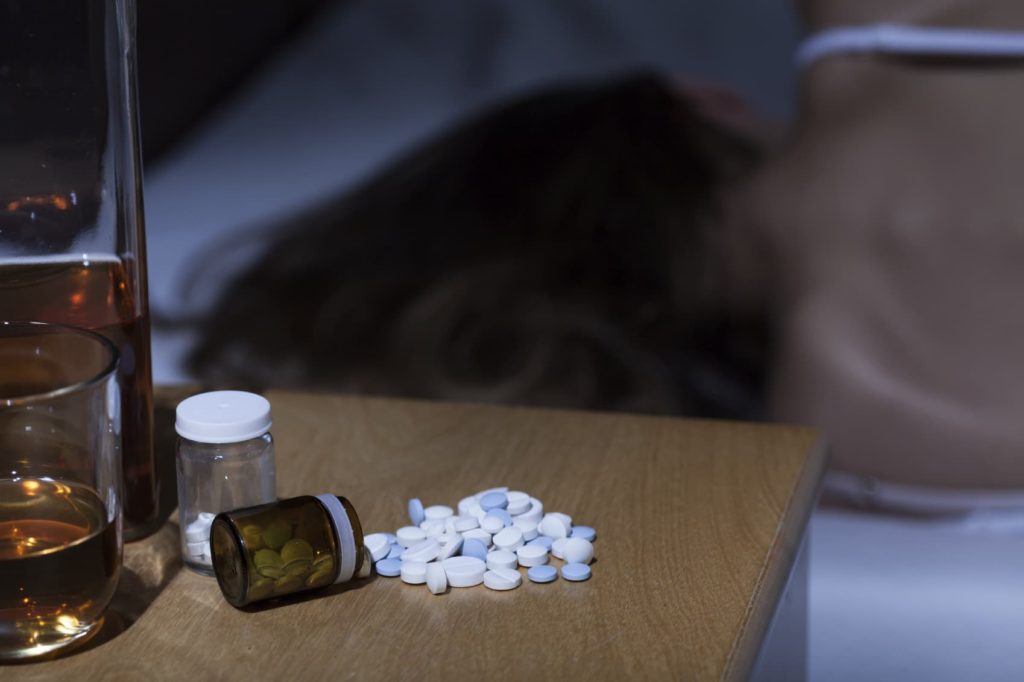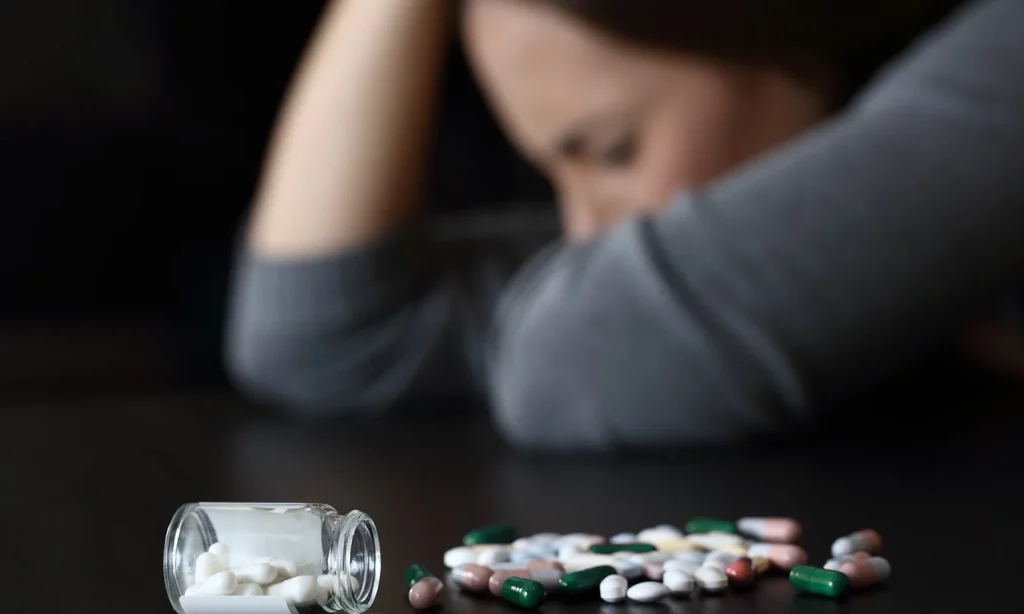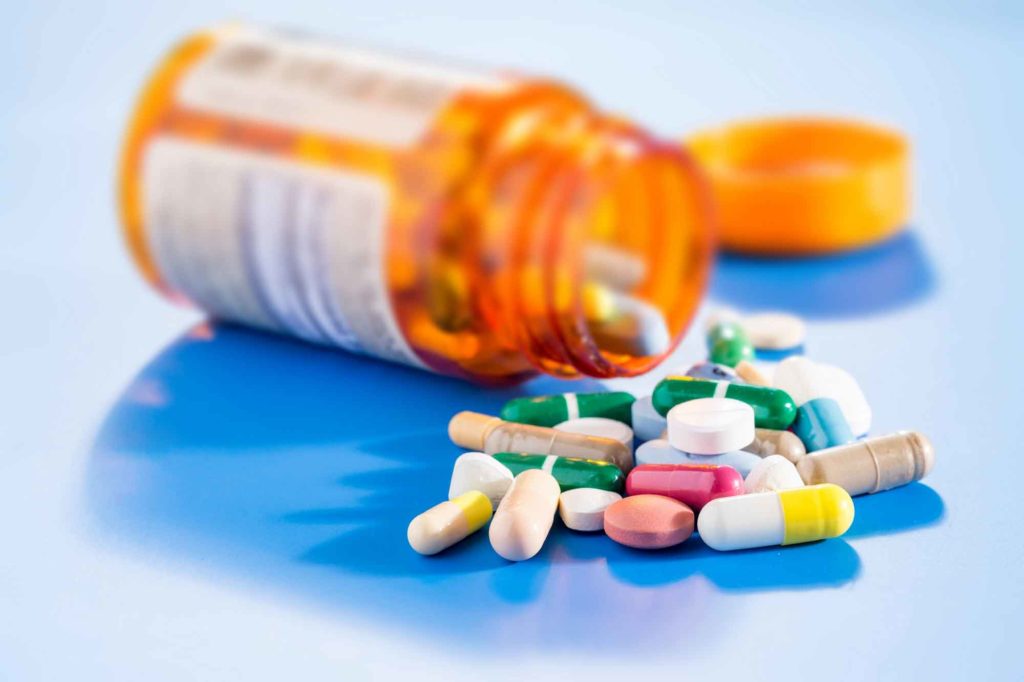What Is Suboxone Used For?
Suboxone contains a combination of buprenorphine and naloxone. Buprenorphine is an opioid medication, and naloxone blocks its narcotic effects. This way, a patient can take buprenorphine for chronic pain, anxiety, insomnia, and other conditions without getting the “high” people often experience with opioids.
In theory, this should prevent opioid abuse. However, many patients overuse Suboxone for reasons other than highs. For example, they might use it in search of a better night’s sleep, or because their pain might be very severe. When someone develops a dependence or addiction to Suboxone, they may experience severe withdrawal symptoms when trying to stop the use. A medically-assisted Suboxone detox can prevent these symptoms.

Suboxone comes as a tablet and in a film or strip that dissolves under the tongue. Patients should never inject or crush Suboxone and mix it into liquid. Those who take this drug need to be tested frequently to ensure proper liver function. They must also wear medical alert tags or bracelets in case of an emergency, such as an accidental overdose.

Get Your Life Back
Find Hope & Recovery. Get Safe Comfortable Detox, Addiction Rehab & Dual Diagnosis High-Quality Care.
Hotline(844) 597-1011Suboxone Side Effects Sexually
The three primary medications used to treat opioid use disorder (OUD) are buprenorphine (the primary component of Suboxone), methadone, and naltrexone, all of which alleviate craving, prevent relapse and reduce overdose.
Buprenorphine has several advantages over naltrexone and methadone and is a great option for most patients. Although it has side effects, sexual dysfunction is not commonly listed, nor is it mentioned on the package insert. However, whether or not buprenorphine can affect sexual function is still unknown, and an area of ongoing research.
What Is Sexual Dysfunction?
Sexual dysfunction is a broad term for problems in any aspect of sexual function for men and women. It refers to troubles with:
- Sexual desire and libido
- Arousal and vaginal lubrication or penile erection
- Orgasm and ejaculation
- Satisfaction with orgasm
Do Opioids Cause Sexual Dysfunction?
All opioids have long been known to cause sexual dysfunction. This holds for opioids for OUD treatment, like methadone, and opioids for chronic pain. The prevalence of sexual dysfunction reported by men taking methadone for OUD treatment varies widely and ranges from 30-to 100%. Women also experience opioid-related sexual dysfunction, although less is known.
Opioids like methadone cause sexual dysfunction by stimulating the μ-opioid receptor. Activating this receptor suppresses the release of the brain sex hormones that stimulate the production of testosterone. Buprenorphine also blocks testosterone production directly, at the testicles.
Blocking testosterone production inhibits sexual function in both men and women. μ-opioid receptor activation also inhibits the release of the neurotransmitters that are needed to produce sexual desire.
Buprenorphine and Sexual Dysfunction
Like methadone, buprenorphine activates the μ-opioid receptor. However, unlike methadone, buprenorphine only partially stimulates that receptor. For this reason, buprenorphine is called a partial opioid agonist, whereas methadone is a full opioid agonist. It is not yet known, for sure, whether a partial opioid agonist like buprenorphine can affect sexual function.
Several studies have shown high levels of sexual dysfunction in those taking buprenorphine. In a study on men, almost all patients reported some sexual problems, and low sex drive (93%) was more commonly reported than erectile dysfunction (78%).
In another study of women taking buprenorphine, 57% reported sexual dysfunction. However, these studies were not designed to clarify whether the dysfunction was caused by the medication or by other issues like having OUD. One more recent study followed a group of men with OUD from before starting buprenorphine to four months later.

Results indicate that the sexual dysfunction scores were high at to start, but increased further throughout the study, especially in the areas of sexual desire, psychological arousal, erection, and ease of orgasm. This study has caused people to wonder if buprenorphine might indeed be having an adverse effect on sexual function like the other opioids do.
Get Help. Get Better. Get Your Life Back.
Searching for Accredited Drug and Alcohol Rehab Centers Near You?
Even if you have failed previously and relapsed, or are in the middle of a difficult crisis, we stand ready to support you. Our trusted behavioral health specialists will not give up on you. When you feel ready or just want someone to speak to about therapy alternatives to change your life call us. Even if we cannot assist you, we will lead you to wherever you can get support. There is no obligation. Call our hotline today.
(844) 597-1011Suboxone Side Effects In Females Sexually
Suboxone And Menstruation
Although an uncommon side effect, effects on the menstrual cycle can occur while taking Suboxone, due to its inhibitory effects on the production of certain hormones.
Potential side effects of Suboxone might include:
- Shorter periods (hypomenorrhea)
- Irregular cycle/loss of one’s period (amenorrhea)
- Lighter blood flow
Suboxone And Infertility
Infertility is a potential side effect of Suboxone, due to the effects of chronic opioid use on hormones. Both men and women can be affected, according to the FDA. The reversibility of effects on fertility is unknown.
Suboxone Side Effects In Males Sexually
Suboxone And Erectile Dysfunction
Erectile dysfunction is one of the most commonly reported sexual side effects in people who take Suboxone. While this can be physically uncomfortable, for most, the greatest discomfort is mental and psychological. Erectile dysfunction can affect self-esteem, and quality of life, and may affect a person’s willingness to continue their treatment with Suboxone, despite the medication’s benefits.
Suboxone And Low Testosterone
Reduced testosterone levels are a potential side effect of Suboxone and the chronic use of opioid drugs more broadly.
Signs and symptoms of low testosterone include:
- Reduced sexual desire
- Loss of body hair
- Fatigue or low energy
- Erectile dysfunction
- Slowed beard growth
- Irritability
- Symptoms of depression
First-class Facilities & Amenities
World-class High-Quality Addiction & Mental Health Rehabilitation Treatment
Rehab Centers TourRenowned Addiction Centers. Serene Private Facilities. Inpatient rehab programs vary.
Addiction Helpline(844) 597-1011Proven recovery success experience, backed by a Team w/ History of:
15+
Years of Unified Experience
100s
5-Star Reviews Across Our Centers
10K
Recovery Success Stories Across Our Network
- Low Patient to Therapist Ratio
- Onsite Medical Detox Center
- Comprehensive Dual-Diagnosis Treatment
- Complimentary Family & Alumni Programs
- Coaching, Recovery & Personal Development Events
Suboxone And Premature Ejaculation
Premature ejaculation is a common side effect of many medications, including Suboxone. In one study of 40 men taking Suboxone, at least 18 reported experiencing ejaculatory dysfunction.
What Causes Sexual Dysfunction While Taking Suboxone?
Suboxone, like other opioid-based drugs, can affect the body’s hypothalamic-pituitary-gonadal axis. This can lead to an adrenal deficiency, which is associated with sexual dysfunction.
Are Sexual Side Effects Of Suboxone Long-Term?
Sexual side effects of Suboxone may persist as long as a person is taking Suboxone. However, treatment options for sexual dysfunction while taking this medication are available. With treatment for sexual dysfunction, these side effects may be effectively managed. This may involve both pharmacological and behavioral treatments, depending on the cause.
Is It Safe to Take Viagra and Suboxone?
There are no known interactions between Suboxone and Viagra or any of the other popular ED treatments. However, it’s always important to talk with your healthcare provider before taking any medicines for ED as some can have serious side effects, especially if you have certain medical conditions.
Does Suboxone Lower Sexual Desire and Libido?
Whether buprenorphine lowers sexual desire and libido, in particular, is still not fully known. Some problem with a libido is reported in 23-93% of people taking buprenorphine, depending on the population studied.
Can You Get Addicted to Suboxone? Suboxone Detox
t is possible to get addicted to suboxone, and the first step to recover from this is going into detox. Suboxone detox may feel harder than other detox regimens because it requires getting off a drug that was supposed to end a different addiction. During Suboxone detox, you will probably deal with severe original symptoms such as anxiety, insomnia, and panicking. This is why it is so vital to take detox in a Suboxone addiction treatment facility with professionals nearby to help.
Additionally, withdrawal from Suboxone looks a bit different from most withdrawal processes. Many addicts mistake initial endorphin drops for withdrawal. However, true withdrawal does not begin until addicts start tapering off dosages. True withdrawal can take as long as 72 hours to begin, and the full process can last up to a month.
Many Suboxone withdrawal symptoms mimic those of other drugs, especially opioids. You will experience the worst physical and psychological symptoms within the first 72 hours after initial withdrawal. Symptoms include headaches, fever or chills, nausea, vomiting, and diarrhea. Psychologically, you may experience resurgent original symptoms such as anxiety, agitation, and insomnia. Some addicts get violent at this stage, but clinicians will help you avoid harming yourself and others.

During the first week of withdrawal, your physical symptoms will decrease, but you may still experience anxiety and mood swings. Within two weeks, the worst physical and psychological symptoms will decrease dramatically. However, you will probably experience cravings and depression. Inpatient treatment can help tremendously during this stage.
World-class, Accredited, 5-Star Reviewed, Effective Addiction & Mental Health Programs. Complete Behavioral Health Inpatient Rehab, Detox plus Co-occuring Disorders Therapy.
CALL(844) 597-1011End the Addiction Pain. End the Emotional Rollercoaster. Get Your Life Back. Start Drug, Alcohol & Dual Diagnosis Mental Health Treatment Now. Get Free, No-obligation Guidance by Substance Abuse Specialists Who Understand Addiction & Mental Health Recovery & Know How to Help.
Suboxone Addiction Treatment
The key to maintaining sobriety is applying long-term therapy. Without it, it may become impossible for many to remain abstinent for any relevant length of time. Depending on the experience of the client leading up to and during addiction, and goals for the future, the therapeutic choices incorporated into an individualized treatment plan may vary widely from person to person. In most cases, however, a treatment plan to address Suboxone addiction will include:
- Evaluation and assessment: A full understanding of all the issues that play a role in a person’s use of drugs is essential to creating a directed and effective treatment plan. Behavioral disorders, co-occurring mental health disorders, underlying medical conditions, trauma, and more are identified early on to ensure that these issues are all addressed during the treatment process.
- Unique treatment plan: Depending on the results of the evaluation and assessment, the person’s goals for recovery, length of time in treatment, and available resources, a unique treatment plan is created.
- Personal therapy: Meeting regularly with a therapist on a one-on-one basis can provide a “home base” for the client throughout recovery. Here, it is possible to work on past issues and present challenges and manage treatment goals.
- Individualized case management: Case management is required to ensure that all pieces of the puzzle are fitting together in a way that provides coping skills for long and stable recovery after treatment.
- Group therapy sessions for addiction: Meeting regularly with others who are also on the path to balance in sobriety can provide a valuable network of support during treatment and in the months and years following.
- Peer support, or 12-Step meetings: The 12-Step treatment structure has proven beneficial in the lives of millions of people, and many treatment programs incorporate the philosophy and group session style into their programs. This not only offers clients positive support in recovery but also provides them with a portable therapy option that will assist them in the transition into independent sobriety.
- Alternative therapies: Artistic therapies, food-based therapies, exercise therapies, animal-assisted therapies, and more can be excellent additions to the traditional therapies mentioned above. These should be chosen based on a client’s interests and areas of need. For example, those struggling with making positive connections with other people in recovery and trusting themselves may opt for sports and adventure therapy that takes them into the outdoors with a group to explore nature and step outside their comfort zone.
- Holistic therapies: Holistic therapies can also be personalized to suit the personality and interest of the individual. Some popular options include yoga, meditation, drumming, hypnotherapy, acupuncture, and more.
- Long-term aftercare and support: Treatment does not stop when rehab ends. Rather, this initial phase of recovery is just a starting point, and those who are most successful in maintaining sobriety for the long-term are the ones who remain actively engaged in treatment for all issues (e.g., addiction, co-occurring mental health issues, etc.) for years after transitioning into independent living. This can mean continuing to meet with a personal therapist, attending 12-Step meetings, connecting with other support group options, and engaging in holistic and alternative therapies that are meaningful.
Experience Transformative Recovery at We Level Up Treatment Centers.
See our authentic success stories. Get inspired. Get the help you deserve.
Start a New Life
Begin with a free call to an addiction & behavioral health treatment advisor. Learn more about our dual-diagnosis programs. The We Level Up Treatment Center Network delivers recovery programs that vary by each treatment facility. Call to learn more.
- Personalized Care
- Caring Accountable Staff
- World-class Amenities
- Licensed & Accredited
- Renowned w/ 100s 5-Star Reviews
We’ll Call You



